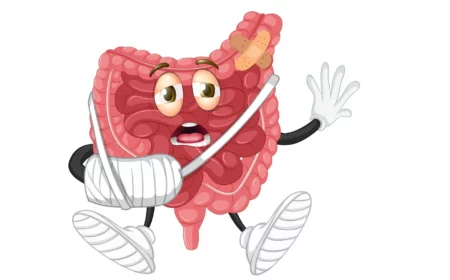 A well-functioning digestive system is crucial for nutrient absorption and overall health. However, nutrient deficiencies can significantly impact this intricate system, leading to various digestive issues.
A well-functioning digestive system is crucial for nutrient absorption and overall health. However, nutrient deficiencies can significantly impact this intricate system, leading to various digestive issues.
Maintaining a balanced and nutrient-rich diet is key to supporting digestive health and preventing potential disruptions. If you suspect nutrient deficiencies, consult with a healthcare professional for appropriate testing and guidance on improving your nutritional intake.
Let’s explore the relationship between nutrient deficiencies and digestive disruptions.
1. The Role of Nutrients in Digestive Health
Nutrients such as vitamins, minerals, and other essential compounds play a vital role in supporting digestive functions. These include breaking down food, absorbing nutrients, and promoting a healthy gut environment.
2. Vitamin Deficiencies and Digestive Challenges
Deficiencies in vitamin B12, crucial for nerve function and the production of red blood cells, can lead to digestive issues. Symptoms may include constipation, diarrhea, and an increased risk of developing conditions like irritable bowel syndrome (IBS).
3. Mineral Imbalances and Gut Function
Magnesium is essential for muscle function, including the smooth muscles of the digestive tract. A magnesium deficiency can contribute to constipation and other gastrointestinal disturbances.
4. Impact of Vitamin D on Gut Health
Adequate vitamin D levels are associated with a lower risk of inflammatory bowel diseases. Deficiencies in vitamin D may contribute to inflammation in the gut, potentially exacerbating conditions like Crohn’s disease or ulcerative colitis.
5. Zinc Deficiency and Digestive Disorders
Zinc is essential for immune function and wound healing in the digestive tract. A zinc deficiency may impair the integrity of the gut lining, increasing susceptibility to infections and inflammation.
6. Maintaining Gut Microbiota Balance
Nutrient deficiencies can influence the balance of gut microbiota. Probiotics, beneficial bacteria that support digestion, may be negatively impacted, leading to an imbalance associated with digestive disorders.
7. Addressing Iron Deficiency Anemia
Iron deficiency anemia, characterized by a lack of red blood cells, can result in fatigue and weakness. It may also lead to digestive symptoms such as nausea, constipation, or a sore tongue.
8. Promoting Digestive Wellness Through Nutrition
A well-balanced diet rich in a variety of nutrients is essential for digestive health. Incorporating a diverse range of fruits, vegetables, whole grains, and lean proteins helps ensure an adequate intake of essential nutrients.
Picture Credit: Freepik
